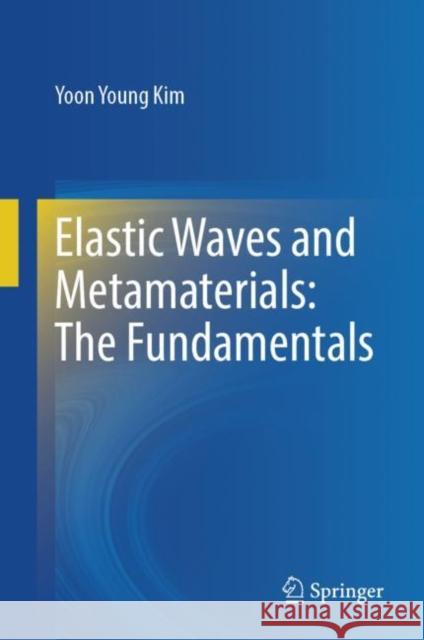Elastic Waves and Metamaterials: The Fundamentals » książka
Elastic Waves and Metamaterials: The Fundamentals
ISBN-13: 9789819902040 / Angielski
Elastic Waves and Metamaterials: The Fundamentals
ISBN-13: 9789819902040 / Angielski
(netto: 208,10 VAT: 5%)
Rabat: -50%
Najniższa cena z 30 dni: 346,96
22 dni roboczych
Darmowa dostawa!
This book serves as an introductory text for students and engineers with limited knowledge of metamaterials (and elastic waves).This text begins with the most straightforward vibrating systems, such as single and 2-DOF spring-mass systems. It examines the observed phenomena in 2-DOF systems in an unconventional manner to prepare the reader for research on metamaterials. After presenting wave phenomena in an infinitely connected spring-mass system, an elastic bar, a continuous version of an infinite system, is analyzed. This instructional strategy, which progresses from the discrete model to the continuous model, facilitates efficient comprehension of wave and metamaterial concepts. Using continuous and discrete one-dimensional models, bending waves and their manipulation through metamaterials are also discussed. In the latter chapters of this book, advanced readers are introduced to the fundamental wave phenomena in two-dimensional media and wave manipulation using metamaterials, such as mode-converting transmission.As wave phenomena are the fundamental phenomena in vibrating structures, those interested in acoustics and vibration would gain a great deal of knowledge from this book, as the material covered in it offers a very different perspective on oscillatory phenomena than what is typically found in books on acoustics and vibration. Because this book presents a new technique for manipulating waves using metamaterials, engineers and scientists who work with (ultra)sounds and structural vibrations would find it very useful for expanding their knowledge of relevant topics.
This book serves as an introductory text for students and engineers with limited knowledge of metamaterials (and elastic waves). This text begins with the most straightforward vibrating systems, such as single and 2-DOF spring-mass systems. It examines the observed phenomena in 2-DOF systems in an unconventional manner to prepare the reader for research on metamaterials. After presenting wave phenomena in an infinitely connected spring-mass system, an elastic bar, a continuous version of an infinite system, is analyzed. This instructional strategy, which progresses from the discrete model to the continuous model, facilitates efficient comprehension of wave and metamaterial concepts. Using continuous and discrete one-dimensional models, bending waves and their manipulation through metamaterials are also discussed. In the latter chapters of this book, advanced readers are introduced to the fundamental wave phenomena in two-dimensional media and wave manipulation using metamaterials, such as mode-converting transmission. As wave phenomena are the fundamental phenomena in vibrating structures, those interested in acoustics and vibration would gain a great deal of knowledge from this book, as the material covered in it offers a very different perspective on oscillatory phenomena than what is typically found in books on acoustics and vibration. Because this book presents a new technique for manipulating waves using metamaterials, engineers and scientists who work with (ultra)sounds and structural vibrations would find it very useful for expanding their knowledge of relevant topics.











